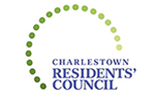Last Updated on July 9, 2024
Scam Alerts From the Residents’ Council Safety & Security Committee
A surge in cyber attacks continues: The FBI’s Internet Crime Complaint Center (IC3.gov), which collects and analyzes public reports of internet crimes, received 880,418 cybercrime complaints in 2023. Monetary losses exceeded an estimated $12.5 billion.
Besides ransomware and data thefts from institutions (like Ascension St. Agnes Hospital and the Maryland Department of Health), ordinary computer and smartphone users are also targeted. If you receive an unexpected email, text or call, there is (unfortunately) a good chance that it may be from a scammer.
There are three simple rules to protect yourself from scams arriving by internet or phone:
- * Never assume the email, text or phone call is from the source claimed. It’s probably not the FBI, IRS, Post Office, Microsoft or UPSAn uninterruptible power supply or uninterruptible power source (UPS) is an electrical apparatus that provides emergency power to a load when the input power source fails. It is supposed to kick in when there is a power outage. A UPS is typically used to protect hardware such as computers, data cent... READ MORE. It may not even be from your grandson or neighbor stuck in Albania, needing money immediately by gift card.
- * When in doubt, inquire with the agency or person whom you know and trust, using phone numbers and addresses you verify or already have. Don’t trust a link, email or phone number you don’t already have.
- * Do not hasten to send money by electronic payment, gift card, credit card, Western Union or crypto currency. Scammers’ social manipulation relies on urgency and anonymity of the recipient to cheat you. So stay patient and don’t jump to send anyone anything until you know for sure that you should.
Here at Charlestown, the Security Department and IT resources including fellow residents can help you evaluate any urgent request. Before you send money to or trust anyone you meet online, discuss the situation first. Sly scammers target seniors. Avoid their frauds by seeking help.
